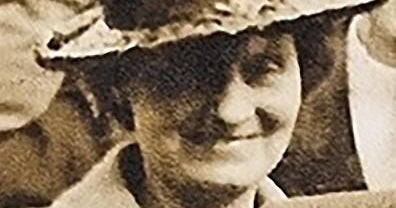Judge rejects plea deal in spy case because sentences weren't harsh enough
A naval engineer and his wife were to be sentenced on Tuesday for trying to sell information about nuclear-powered submarines to a foreign government — until the judge rejected their plea deals, saying they were not harsh enough.
Jonathan Toebbe and his schoolteacher wife, Diana, were arrested in October and pleaded guilty in February to espionage charges.
In a series of dead drops in West Virginia, Pennsylvania and Virginia, Jonathan Toebbe passed military secrets to someone he believed to be an agent of another country, but who was actually an undercover FBI agent, authorities said. In one of the exchanges, he concealed a memory card inside a peanut butter sandwich, according to court filings.
Diana Toebbe admitted that she acted as a lookout for her husband at prearranged secret locations as he deposited classified documents that would later be retrieved by the FBI.
Jonathan Toebbe's outreach to a foreign government, which has not been named in court documents, began in April 2020, when he sent a package with Navy documents and instructions about how to contact him.
"I believe this information will be of great value to your nation," Jonathan Toebbe wrote, according to the criminal complaint.
Months later, the FBI contacted Toebbe, pretending to be an agent of another country. The FBI has not disclosed how it obtained the package, but the New York Times reported Brazilian officials alerted the FBI after receiving it.
In exchange for documents about nuclear submarine designs, Jonathan Toebbe asked for tens of thousands of dollars in cryptocurrency. He also mentioned to his contact that he and his wife might need help fleeing the country.
Prosecutors successfully argued to keep the couple detained during the case, citing messages between the husband and wife in which they talked about quickly fleeing the country. But Diana Toebbe's legal team said prosecutors presented the messages without context, saying her desire to leave the U.S. was based on her distaste for then-President Trump, and not on her husband's attempts to sell classified information to a foreign nation.
During Tuesday's hearing, the judge pushed back against the suggested sentencing in the plea agreements, questioning Justice Department lawyers about why the sentences were not harsher, given the national security risks. The government sought up to 17.5 years for Jonathan Toebbe and three years for Diana Toebbe.
Prosecutors said that Jonathan Toebbe revealed information classified at the confidential level, not at the top-secret or secret level. He was also the mastermind behind the plan — he smuggled the documents out of a secure facility, set up encrypted email accounts and cryptocurrency wallets, made the outreach to the foreign nation and serviced the dead drops.
They argued Diana Toebbe simply acted as a lookout, standing near her husband with her hands on her hips as he made some of his dead drops.
"She will be labeled a spy for the rest of her life," prosecutor Jarod Douglas said of the former schoolteacher. "A felon of the worst kind."
The judge didn't find that to be sufficient punishment, and she also indicated that Jonathan Toebbe's sentence under the deal fell short.
"Counsel, it's not in the best interest of this community or, in fact, this country to accept these plea agreements. Therefore I'm rejecting them … I don't find any justifiable reasons for accepting either one of these plea agreements."
The Toebbes, both wearing orange jumpsuits and handcuffs, withdrew their guilty pleas and the case will go to trial early next year.




